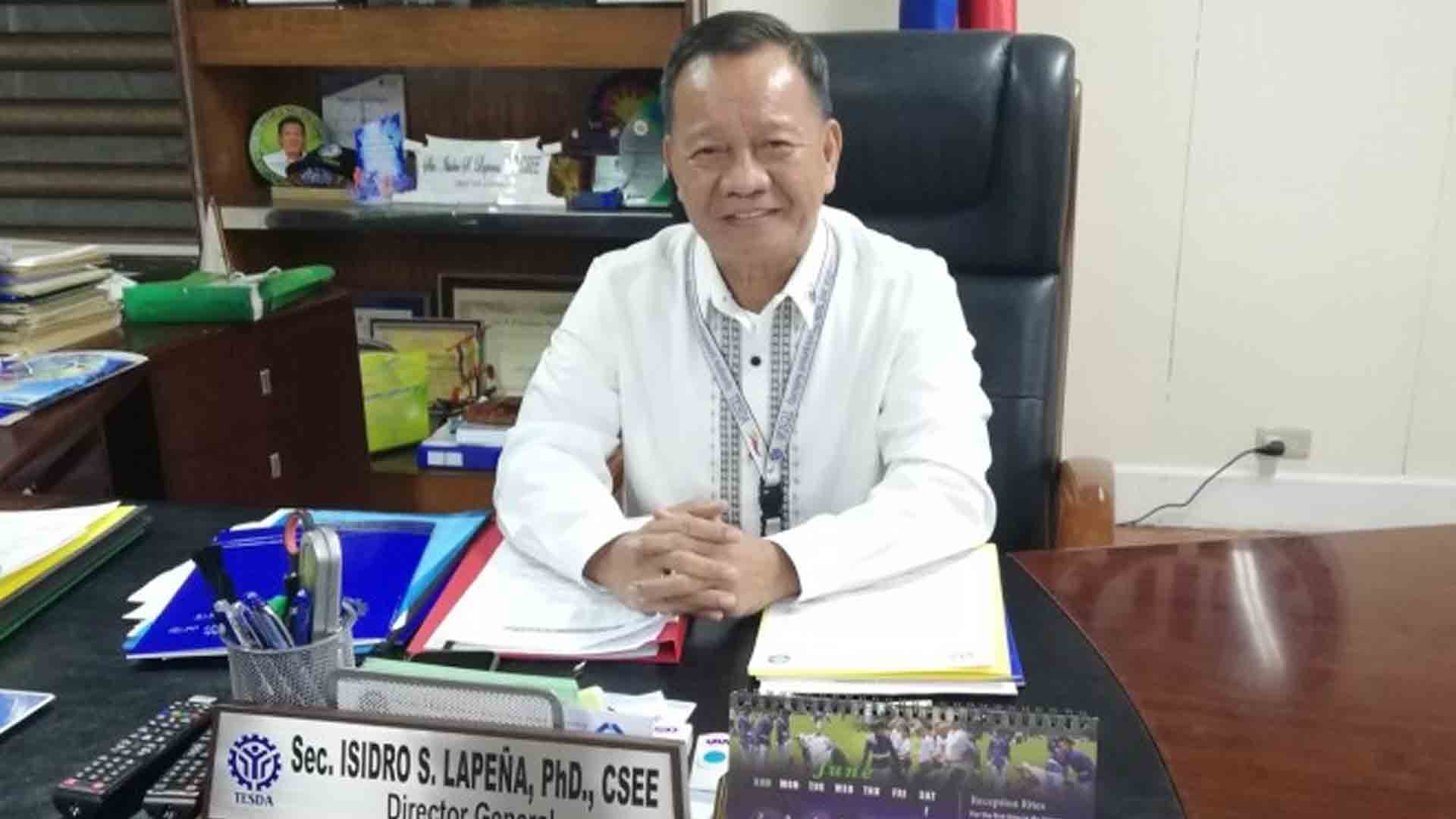The Covid-19 pandemic has brought challenges to many people in 2020, but the Technical Education and Skills Development Authority (TESDA) was steadfast with its purpose of training individuals and pursued its goal of establishing training centers. It also provided aid by distributing reliefs made by the trainees.
In an interview with the Philippine News Agency on Sunday, Secretary Isidro Lapeña shared the various things TESDA has accomplished in 2020.
This year, TESDA established 59 new Provincial Training Centers (PTCs), and two Regional Training Centers (RTCs) in the National Capital Region (NCR) and Region 12.
“Among our long-term plans is the establishment of a PTC in every province. I am glad that the local government units are very supportive of TESDA, as most of the lands where these PTCs were constructed were either donated or under usufruct agreement,” he said.
Lapeña said the creation of an RTC in NCR has long been overdue.
“Aside from being one of most populous regions in the country, the NCR is also home to various types of industries and businesses, so we have to be able to meet the demands of the industries for skilled workers, and cater to the training needs of our kababayans (countrymen) who would like to upskill themselves,” he said.
The TESDA chief also pointed out that despite the disruption of its training classes and assessment due to the pandemic, the agency has recorded the following this year: 568,694 enrollees; 557,850 graduates; 440,122 assessed; and 413,312 certified graduates.
Of the total graduates, 2,193 are overseas Filipino workers (OFWs).
Since March, Lapeña has been promoting the TESDA Online Program (TOP), wherein instead of full qualifications, most of the courses are short courses that learners could complete. TESDA recorded a total of 1,196,522 TOP registrants from March 16 to December 15.
From the start of 2020 until Dec. 15, there were 661,375 learners who completed their TOP. At least 97,883 of them are OFWs and their dependents.
“We are thankful that TESDA was able to help so many Filipinos during the quarantine period. We were able to provide online training to Filipinos across the country, and the learners come from different sectors — university and high school students, out-of-school youth, displaced workers, OFWs, and ordinary individuals who wanted to make their quarantine period more productive,” Lapeña noted.
He also bared that a mission critical information system, specifically to automate the processing of scholarship programs, has been developed and will be rolled out in the first quarter of 2021.
Through the help of TESDA trainees, the agency was able to provide relief while the country battles the pandemic. TESDA has so far produced and distributed more than 443,000 face masks, 40,000 face shields, 10,000 protective body suits, 1,200 pairs of goggles, and 17,800 liters of sanitizers and disinfectants, according to Lapeña.
Even before the Covid-19 pandemic, TESDA had stepped forward to provide aid to the victims of calamities.
“After the Taal Volcano eruption, 946 affected individuals were given short-term skills training; 4,254 families from various evacuation centers were given relief packs. The agency also extended assistance to the typhoon-hit areas. (At least) 4,142 individuals received 5,010 assorted food packs and 9,154 baked products from TESDA. In addition, TESDA’s on-site feeding programs benefited 7,003 individuals. Likewise, TESDA provided temporary shelters for 40 individuals,” the TESDA chief said.
Meanwhile, since TESDA chairs the Poverty Reduction, Livelihood and Employment Cluster (PRLEC) of the National Task Force to End Local Communist Armed Conflict (NTF-ELCAC), Lapeña mentioned that 143 Barangay Development Programs were implemented nationwide, this year.
“With our active convergence with other government agencies and the private sector, our efforts were recently recognized by the NTF-ELCAC, naming PRLEC as the Best Cluster. The barangay development projects will continue to be pursued in 2021, to cover as many barangays as possible from the NTF- identified priority barangays,” he said.
These development programs include a livelihood community-based food production project, training scholarships in communities, and other livelihood supports that aim to improve the living conditions of the beneficiaries.
Lapeña said he eyes to implement these development programs in other disadvantaged areas next year.
Also in 2021, the TESDA chief plans to establish additional Innovation Centers in areas such as NCR and Davao City. An Innovation Center was earlier inaugurated in Cebu.
“We also plan to strengthen partnerships with industries to review training regulations and enhance enterprise-based training,” he said, and added that TESDA eyes the use of artificial intelligence to monitor the attendance of the scholars. (PNA)



